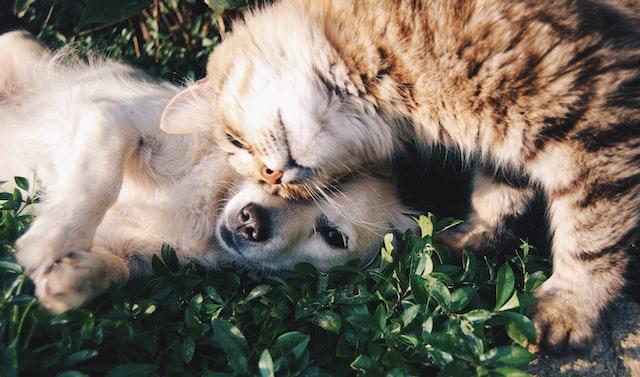
This article is contributed by guest author Sara Hogan (Freelance Writer).
What You Need to Know About Seasonal Pet Care
Not every pet owner lives in an area where the weather and temperatures are consistent all year round. Just as people modify their diet and behavior with temperature fluctuations, so do most pets. So, it would certainly help if you considered this seasonal care when looking after your own furry friend.

Changing the textile, pads, and beds of pets
Just as fresh linen is healthy for humans, a freshly-made bed is also beneficial for pets – although you may want to approach this differently in the different seasons. During the warmer seasons, you’ll want to ensure that your pet’s sleeping space is kept cool. Perhaps you’d consider putting a pet bed in a well-ventilated and shaded spot. This is especially vital if your pet lives outside – they need protection from the sun, meaning they should also have access to fresh drinking water in a spot where it cannot be heated by the sun. On the other hand, in winter, you need to think about doubling up on the textiles, padding, and blankets available in your pet’s bed. Try to make things as comfy and insulated as possible to maintain an adequate temperature.
Make adjustments to the food selection and feeding schedules
As the seasons change, you should be prepared to see a change in your furry friend’s eating habits. If you feed homecooked or raw food to your pet, then it’s vital to provide a great variety of foods over time. If you feed your dog tinned or dried food, it’s also possible to incorporate some fresh ingredients into their mealtime bowl. The providing a variety of nutrients, your pet may be able to access health benefits, thus avoiding intolerances that can come about if the same carbohydrate or protein is fed constantly. A broad spectrum of fresh ingredients can help maintain a healthy immune system and overall health, meaning that you won’t have to rely on supplementation as much. After all, feeding your pet what is in season can help offer them food at its best. Just note that indoor pets are likely to eat less than outdoor pets because they conserve energy by sleeping more. They also don’t have to keep themselves as warm as outdoor pets.

During the transition between seasons, housing is set up
You need to ensure that your pet’s housing is adequate during the transition between seasons. This includes making sure that their sleeping area, diet, shelter, and any other factors affecting your pet daily are adjusted with the fluctuating temperature in mind. This is particularly critical if your pet lives outdoors.
Be aware of seasonal dangers such as heat stroke, fleas, and spring allergies
As new flowers and plants start to blossom, so do the symptoms of specific allergies in your cats and dogs. Animals can react to inhaled particles like pollen, dust, and mould, triggering itchy skin. This will cause your pet to lick, scratch, or bite themselves to get relief. If left untreated, pets with seasonal allergies will lick or scratch themselves constantly, to the point where it could become concerning. Medication may be a good option.
As an example, Benadryl is now commonly used in veterinary practices for several reasons, according to the American Kennel Club. It all boils down to one question: can you give a dog Benadryl? Benadryl is a medication often used on dogs with allergies such as food allergies, seasonal allergies, environmental allergies, and allergic reactions to bites. The medicine works to treat itchiness in your pet and reduces symptoms, such as swelling, coughing, inflammation, sneezing, and runny noses and eyes. It is important to follow the suggested dog Benadryl dosage as your vet advises, ensuring that the medication works effectively.
There are many solutions to allergies in pets, so it is wise to always consult your vet before introducing new medications to your pets, just to be certain of the best route to take in combatting your pet’s allergies.

Pet safety during the holidays, such as unhealthy food and unsafe housing
In order to protect your pet during the holidays, certain precautions must be taken. For example, always consider what your pet is consuming. Keep them away from unattended plates of food, secure your garbage can lids, and don’t allow them to finish leftovers that are unsuitable for them. This includes spicy and fatty foods.
Final Thoughts
So, there you have it. Hopefully, you are now more confident about what action you need to carry out to care for your pet – whatever the seasons may bring. Being a pet parent can be difficult at times, especially when your furry friend can’t tell you what they really need. But by putting the above considerations into practice, you can start properly taking care of your pet today.
